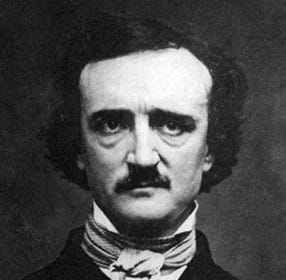Ever since I was a kid, I was fascinated by Edgar Allan Poe. His poems and his short stories were mesmerizing. I read and re-read them because I was fascinated. I grew up in the Bronx in New York City. Nearby there was a park and it was called Poe Park. His cottage sat on the park Was also a source of visit and fascination. And so I present one of his poems To The River.
Your analysis of Edgar Allan Poe's poem "To the River" is articulate and insightful. Below is a revised version that enhances clarity and flow while maintaining your original ideas:
In Edgar Allan Poe's poem "To the River," the speaker engages in a delicate interplay between nature and personal emotions, encapsulating the profound connection he feels with both the river and the figure of beauty he admires. The poem opens with an affectionate address to the river, describing its "bright, clear flow" and "crystal, wandering water." These phrases highlight the river's purity and clarity, portraying it not merely as a physical body of water but as a symbol of beauty and emotional depth. The river serves as a mirror, reflecting not only the beauty of its surroundings but also the inner grace of the "daughter" referenced in the poem, whose likeness seems to inspire the speaker’s deep feelings.
The imagery in the opening lines captures a serene yet vibrant scene, establishing a tone of admiration and reverence. The river is infused with artistic quality, embodying "the playful maziness of art." Here, Poe suggests that the river possesses an intelligence and complexity akin to artistic expression, layered with meaning and nuance. This connection sets the stage for a subsequent exploration of the relationship between the river and the beloved, emphasizing their shared deep-seated beauty.
As the poem progresses, the focus shifts from the river itself to the reflection that appears within its waters. When the object of the speaker’s affection gazes into the river, it creates a moment of intimate recognition. The description of the water as glistening and trembling signifies the emotional turmoil experienced by the speaker, evoking a sense of vulnerability. This trembling mirrors his heart's response to "the beam" of the beloved's "soul-searching eyes." Referring to the speaker as a "worshipper" illuminates the depth of his feelings, suggesting a near-religious reverence for the beloved, whose beauty and spirit transcend mere physicality.
Throughout the poem, Poe effectively intertwines natural and emotional worlds, using the river as a conduit for exploring love and admiration. The closing couplet underscores the profound impact of the beloved’s image on the speaker, anchoring her existence deeply within his heart, much like the river’s flow. This metaphor reinforces the idea that love possesses a fluid and eternal quality, paralleling the winding river itself. Ultimately, "To the River" encapsulates the intertwining of art, beauty, and longing—a recurring theme in Poe’s oeuvre—celebrating the transcendent power of love while evoking the delicate interplay of nature’s influence on the human experience.





I may be wrong but I think you've included some output from Chat GPT here: 'Your analysis of Edgar Allan Poe's poem "To the River" is articulate and insightful. Below is a revised version that enhances clarity and flow while maintaining your original ideas:'
It's ok to use it as a research assistant and proofer, so I'm not having a dig.